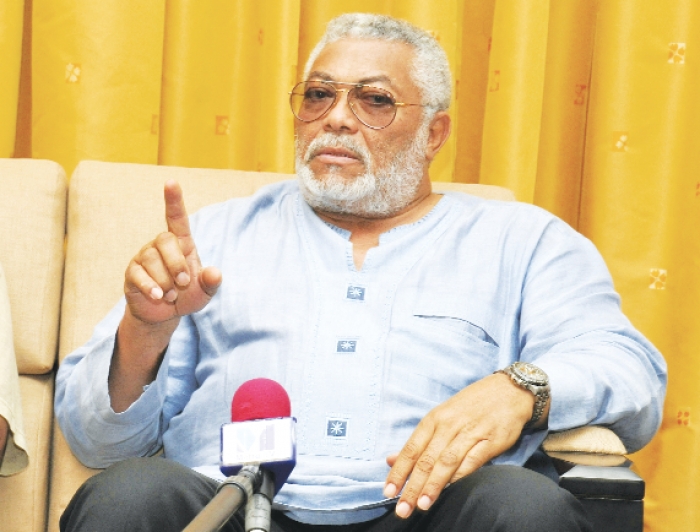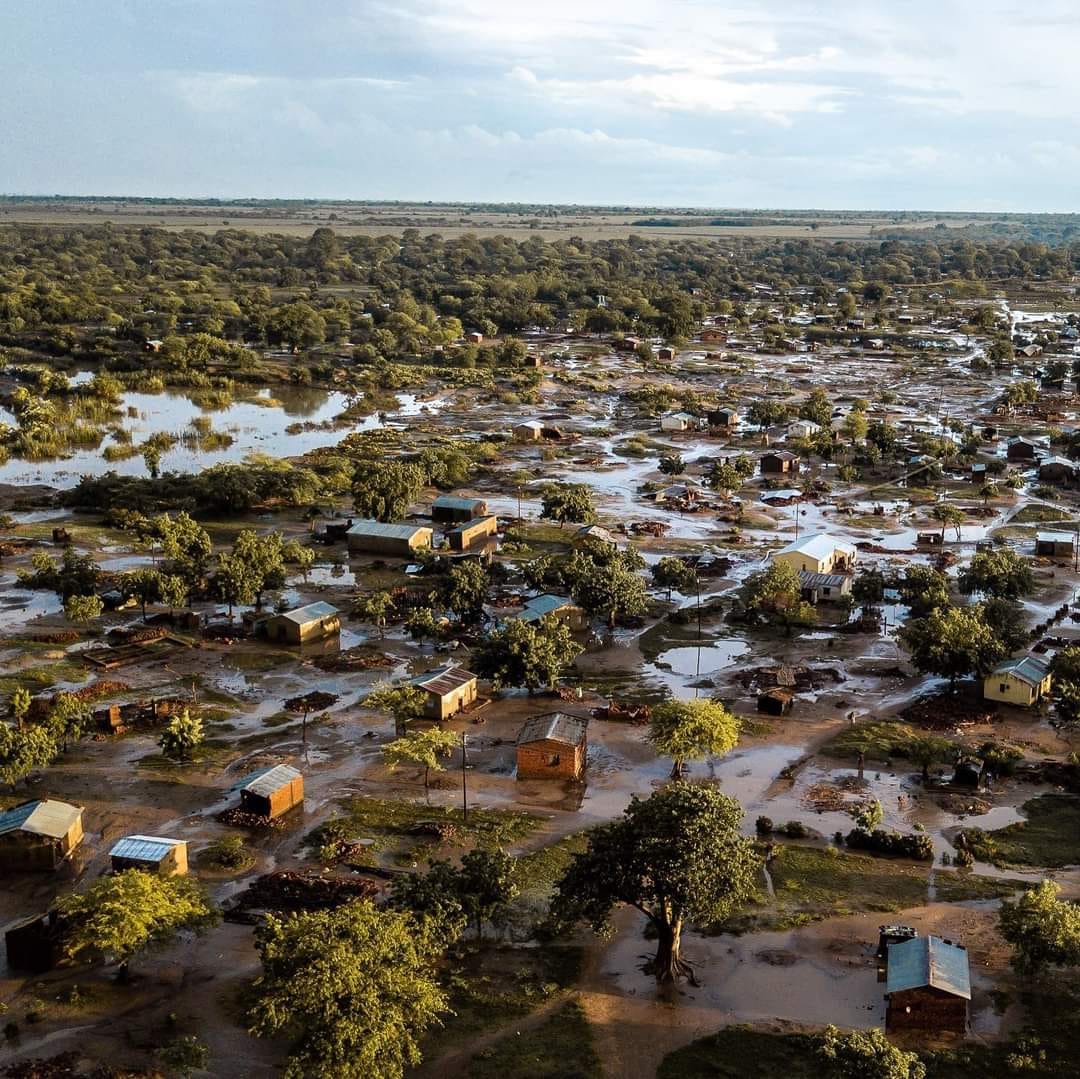On the morning the news broke, Seth Sewornu, who was then head of Ghana’s visa and document fraud unit, got a text message from the director of the police criminal investigation department (CID). Like everyone else, the director wanted to know about Sewornu’s bust. “I was receiving a lot of calls,” Sewornu said when we met earlier this year in an open-air restaurant near the police headquarters in Accra. “A reporter from BBC called me, a CNN reporter called me. The Ghanaian media houses were all calling to find out. I got calls from other police officers.” The U.S. state department story had said that the scammers had also been running a fake Dutch embassy, so the Dutch called, too.
Sewornu was stumped. He knew nothing about any investigations into a fake embassy. He tried to find out which officers had been involved, but the police unit credited by the Americans, the Ghana Detectives Bureau, didn’t exist. Ghana’s national Swat unit, the CID and the Bureau of National Investigation all told Sewornu that they weren’t involved either.
It didn’t make any sense. The entire story seemed to be based on one source: the
U.S. state department website. And their source was the U.S. embassy in Accra. “So I called the American embassy to find out, and my contact said: ‘I don’t know anything about it,’” said Sewornu. “It was like they were tightlipped over the matter.”
In Ghana, it can be extremely difficult to obtain visas for travel to other countries. The application processes tend to be expensive, time-consuming and usually end in disappointment. As a result, over the past two decades, a thriving underground economy has sprung up in Accra. It ranges from low-level conmen who can produce counterfeit paperwork to sophisticated criminal organisations that operate in multiple countries. In 2016, of all the American embassies in the world, the one in Ghana had the highest number of pending fraud cases, according to a U.S. state department report.
The operators and middlemen who help circumvent the visa application processes are so ubiquitous that few people realise that what they do is illegal, Sewornu told me. “Some are very bold, they advertise visas on TV,” he said. “Plenty have fallen victim. They think it’s authentic once it’s on TV.”
Sewornu has been a policeman for 23 years, and as we spoke, he was serious and reserved – but when he talked about particularly audacious crimes, he started grinning. “I’ve lost count of the musicians,” he said. “A lot of them are into visa fraud. They go on tour and take people who can’t even perform. They just play CDs and lipsync.” Then, those people vanish.
In the past, he said, passports were easier to tamper with. Fraudsters would steal a real passport belonging to a well-travelled person with valid visas and replace the picture with one of a paying client. The classic method was to put the passport in a freezer for about an hour, which caused the film on the photo page to peel away. Then, said Sewornu, the scammers could “clean off the original picture with chemical eraser, and put in a new one, printed on a thin, almost transparent film.”
Now that passports contain biometric data, such as fingerprints, it is becoming harder and harder to get away with this kind of crime. “You can’t fake everything 100%,” said Sewornu. Instead, the underground economy has started to focus on faking the documents required for legitimate visa applications, both for short visits and for people who want to emigrate. For the right fee, you can get hold of school certificates that turn you from an unskilled worker to a PhD, or bank records that turn you from a shoeshine boy into a successful entrepreneur. Of course, scammers do still offer fake visas, but most of these are not actually intended to get the bearer past border control in other countries. Instead, they’re meant to make it look – to embassies – like you’ve travelled extensively, and returned to Ghana each time. As if you are the kind of person who has no intention of becoming an illegal immigrant.
In 2010, as the number of fake travel documents continued to rise, Ghana’s government founded the Document Fraud Expertise Centre, which verifies documents for embassies, banks and the police. It’s the only one in west
Africa, which reflects the sheer scale of Ghana’s shadow visa industry. In 2016, about half the documents submitted to them for testing turned out to have been forged.
 Image by Yepoka Yeebo. Ghana, 2017.[/caption]
On Friday 2 December 2016, a curious story appeared on the website GhanaBusinessNews.com. “Ghana security authorities shut down fake U.S. Embassy in Accra,” the headline declared. For a decade, the story went, there had been a fake U.S. embassy in the Ghanaian capital. The fraudsters behind it had flown the American flag from their building and even hung a portrait of Barack Obama on the wall. The criminal network behind the scam had advertised on billboards and prowled the most remote villages of west Africa, searching for gullible customers. They brought them to Accra, and sold them visas for as much as $6,000 (£4,495).
The story was an immediate hit. “In less than an hour we were getting 20,000 views on the website for that story alone,” Emmanuel Dogbevi, the website’s managing editor, told me. Two days later, the news agency Reuters picked up the story and it swiftly became an international sensation.
“No Passport Control: Mobsters busted after running FAKE US Embassy in Ghana for 10 years” (The Sun). “‘Sham’ US embassy in Ghana issued fake visas for a decade” (Fox News). “Ghana uncovers fake US embassy that issued authentic visas” (Deutsche Welle). “The actual US embassy in Accra shut down the fake embassy over the summer,” stated the Chinese news agency Xinhua. “This takes counterfeiting operations to a whole new level,” read a comment about the story on the Times of India website, which triggered an argument between readers over which country did corruption better.
According to a U.S. state department statement, which had been published in early November, the fake embassy was operated by “figures from both Ghanaian and Turkish organized crime rings and a Ghanaian attorney practicing immigration and criminal law”. The American authorities supplied a picture of an old, two-storey pink building with a tin roof, originally captioned: “The exterior of the fake embassy in Accra, Ghana.” The caption was later changed to: “One of several buildings used by the disrupted fraud ring.”
Reuters reported that the Americans, with the help of the Ghana Detectives Bureau, had raided the fake embassy. Several people were arrested, and officials seized 150 passports from 10 different countries. The Ghanaian police did not distinguish themselves. The conmen eluded them long enough to move the operation out of Ghana, and get their associates out on bail. But, the U.S. state department said, the number of fraudulent documents coming from west Africa had gone down by 70% as a result of this and other raids, and “criminal leaders no longer have the political cover they once had”.
The fake embassy became a sensation largely because the story was so predictably familiar. The Africans were scammers. The victims were desperate and credulous. The local police officers were bumbling idiots. Countless officials were paid off. And at the end, the Americans swooped in and saved the day. There was only one problem with the story: it wasn’t true.
Image by Yepoka Yeebo. Ghana, 2017.[/caption]
On Friday 2 December 2016, a curious story appeared on the website GhanaBusinessNews.com. “Ghana security authorities shut down fake U.S. Embassy in Accra,” the headline declared. For a decade, the story went, there had been a fake U.S. embassy in the Ghanaian capital. The fraudsters behind it had flown the American flag from their building and even hung a portrait of Barack Obama on the wall. The criminal network behind the scam had advertised on billboards and prowled the most remote villages of west Africa, searching for gullible customers. They brought them to Accra, and sold them visas for as much as $6,000 (£4,495).
The story was an immediate hit. “In less than an hour we were getting 20,000 views on the website for that story alone,” Emmanuel Dogbevi, the website’s managing editor, told me. Two days later, the news agency Reuters picked up the story and it swiftly became an international sensation.
“No Passport Control: Mobsters busted after running FAKE US Embassy in Ghana for 10 years” (The Sun). “‘Sham’ US embassy in Ghana issued fake visas for a decade” (Fox News). “Ghana uncovers fake US embassy that issued authentic visas” (Deutsche Welle). “The actual US embassy in Accra shut down the fake embassy over the summer,” stated the Chinese news agency Xinhua. “This takes counterfeiting operations to a whole new level,” read a comment about the story on the Times of India website, which triggered an argument between readers over which country did corruption better.
According to a U.S. state department statement, which had been published in early November, the fake embassy was operated by “figures from both Ghanaian and Turkish organized crime rings and a Ghanaian attorney practicing immigration and criminal law”. The American authorities supplied a picture of an old, two-storey pink building with a tin roof, originally captioned: “The exterior of the fake embassy in Accra, Ghana.” The caption was later changed to: “One of several buildings used by the disrupted fraud ring.”
Reuters reported that the Americans, with the help of the Ghana Detectives Bureau, had raided the fake embassy. Several people were arrested, and officials seized 150 passports from 10 different countries. The Ghanaian police did not distinguish themselves. The conmen eluded them long enough to move the operation out of Ghana, and get their associates out on bail. But, the U.S. state department said, the number of fraudulent documents coming from west Africa had gone down by 70% as a result of this and other raids, and “criminal leaders no longer have the political cover they once had”.
The fake embassy became a sensation largely because the story was so predictably familiar. The Africans were scammers. The victims were desperate and credulous. The local police officers were bumbling idiots. Countless officials were paid off. And at the end, the Americans swooped in and saved the day. There was only one problem with the story: it wasn’t true.




![The children attempted to remove an illegally erected gate around their playground [AFP]](https://panafricanvisions.com/wp-content/uploads/2015/01/201511913202594580_20.jpg)

























